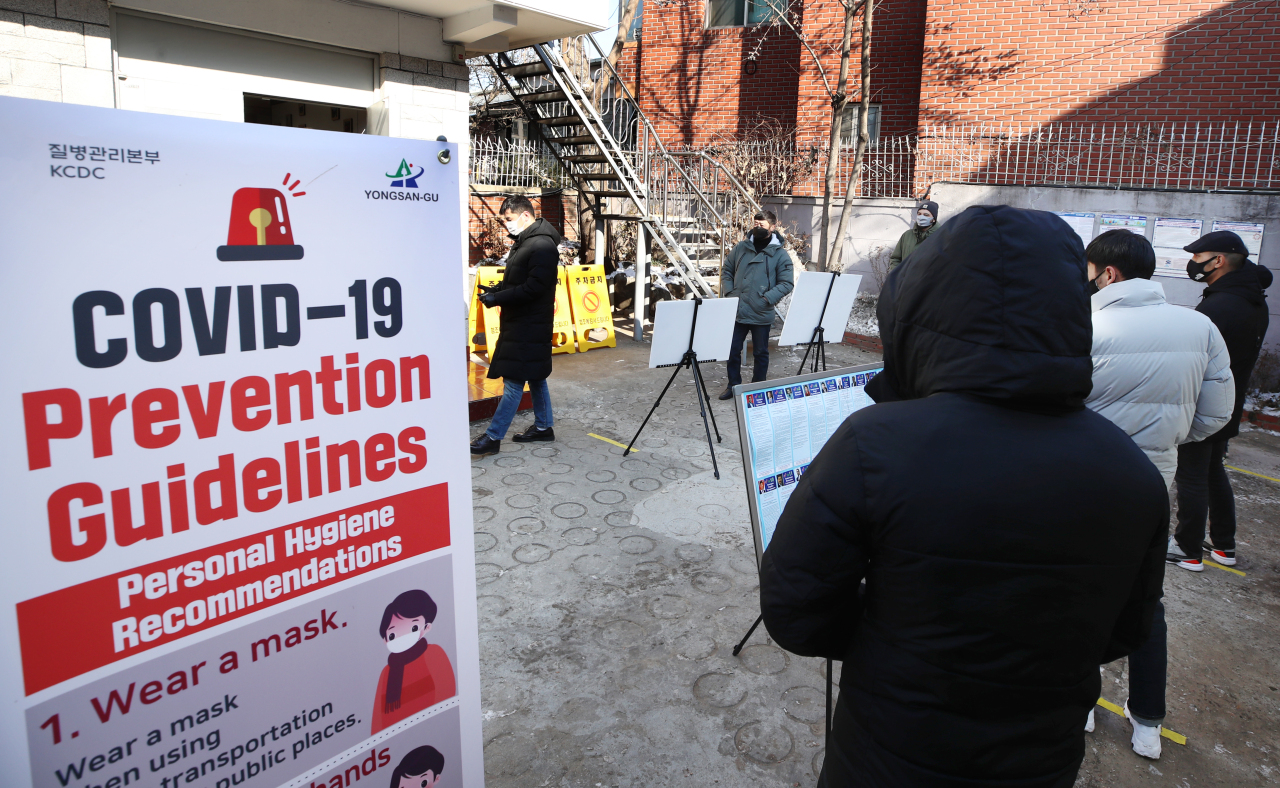 |
Kyrgyz voters stand in line to participate in the presidential election at the Kyrgyz Embassy in Seoul on Jan. 10. (Yonhap) |
The government will put efforts into improving the basic living infrastructure for foreigners and North Korean defectors, the Ministry of the Interior and Safety said Wednesday.
The ministry plans to provide a total of 2 billion won ($1.8 million) for the project.
Local governments across the country can apply for the financial support with their individual plans to help foreigners and North Korean defectors in each region.
If selected, each applicant can receive up to 200 million won. The application period is open until March 10. The final selections will be made in April after evaluating the plans and conducting on-site inspections.
Residential areas where many foreigners and North Korean defectors live are located near major cities or industrial complexes, the Interior Ministry said, and there is a lack of opportunities to socialize with the locals, sometimes causing misunderstandings and conflicts due to cultural differences and social prejudice.
The project will focus on upgrading support centers so that foreigners and North Korean defectors can easily access essential information about living in the country, according to the ministry.
It will also put emphasis on expanding community facilities to activate communication and exchanges among foreigners, North Korean defectors and local residents.
The ministry added that it will give priority to plans that show the participation of foreigners, North Korean defectors and local residents from the beginning stages of the project.
As of November 2019, the number of foreigners living in South Korea reached over 2.2 million, accounting for 4.3 percent of the country’s total population. The number of North Korean defectors in the country stood at around 34,000 as of December 2019, according to the ministry.
There are 95 cities, counties and districts that have over 10,000 foreign residents who make up at least 5 percent of the area’s population.
By Kan Hyeong-woo (
hwkan@heraldcorp.com)








